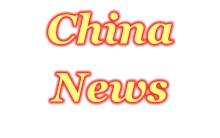Copyright © 2025 globalgrype.com
All rights Reserved
China’s Economic Spiral
Xi Jinping’s Tariff Gamble Triggers Nationwide Involution Crisis
China’s economy is facing a severe and deepening crisis as internal
competition, or “involution,” reaches unsustainable levels. In a May
1, 2025 report, China Observer details how tariff hikes by the United
States have accelerated a collapse in China’s export-driven
manufacturing base, pushing countless factories into the saturated
domestic market where survival has become a brutal race to the
bottom.
One business owner explained that once exports dried up due to
tariffs, factories were left with no alternative but to try selling locally. However, with domestic consumer
demand already sluggish and weakened by falling incomes and low confidence, price-cutting became
the only path forward. This strategy has devastated profitability and product quality. Multi-layer panels
are no longer truly layered, eco-panels are no longer eco-friendly, and environmental standards are
being abandoned. Meanwhile, platforms like Pinduoduo have made it virtually impossible for higher-
cost export-oriented businesses to compete in a market already dominated by ultra-low pricing.
Criticism of this government strategy has gone viral on social media platforms like TikTok. Users argue
that simply shifting to domestic sales is not a viable solution, pointing out that the population size and
income level have not changed, and domestic consumer capacity is limited. Additionally, many export
goods—from surfboards to lawnmowers—don’t suit domestic preferences or purchasing power.
A key concept discussed in the video is “involution,” a term now widely used in China to describe
endless, zero-sum competition that yields no net gains for society. The situation has deteriorated since
2020, particularly due to the Chinese Communist Party’s tightening grip on the private sector and
prioritization of political control over economic growth during the pandemic. As exports dwindle, the
state has pushed companies into the already saturated domestic economy, exacerbating the very
competition it claims to be solving.
The effects are being felt across all sectors. The ride-hailing industry has absorbed millions of former
white-collar workers who now endure punishing hours for low pay, manipulated by algorithmic systems
that keep earnings stable but minimal. Food delivery, restaurants, and even barbershops have entered
the same cycle. Prices for skewers and haircuts have plummeted as businesses undercut each other
to stay afloat.
In industries like animal feed and construction, similar trends are emerging. A professional in the feed
industry predicted that 30% of companies might fail this year due to overproduction, weak branding,
and a misguided focus on slashing prices. Construction, once buoyed by China’s real estate boom,
has collapsed, with many workers left jobless after the market completed decades of growth in just a
few years.
The video also highlights cultural critiques, including a reflection on the Chinese belief in “small profits
and high volume.” Commentators warn that this model leads to deteriorating product quality and
business failure. Some compare it to Western business models that prioritize fewer sales with higher
margins and stronger customer loyalty.
Generational tensions are rising. While older citizens claim younger people lack work ethic, younger
generations argue they’re being asked to sacrifice their futures to rescue an economy mismanaged by
past leadership. Many refuse to take on loans or make large purchases, which the government hoped
would stimulate spending.
Ultimately, many analysts and commentators attribute the root cause of China’s economic stagnation
to its political structure. Since the 1990s, all major profit-making sectors have been controlled by elite
families tied to the Communist Party. Under Xi Jinping’s leadership, this concentration of power has
worsened, with critics saying it forces 1.4 billion citizens into cutthroat competition for diminishing
returns. Economist Li Hongqing warned that public frustration is reaching a breaking point, as the
country’s political model sacrifices everyday people to preserve elite control. Banners hung in
Chengdu read, “The people don’t need a party with unchecked power,” signaling that the growing
pressure may eventually erupt into larger movements for change.




China’s Economic Spiral

